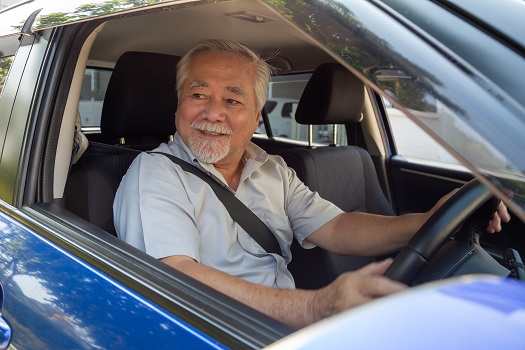There will come a time in every senior’s life when it’s necessary to make the transition from driver to passenger. Whether this is due to failing eyesight or a change in mobility, it’s important that the transition from being able to drive to needing to be driven is handled sensitively and compassionately by the senior’s family. If you’re unsure of how to help, here are some tips on how to make your aging loved one’s transition a little bit easier.
Expect Resistance
While some seniors accept they can no longer operate vehicles, many will protest and insist they’re still capable of driving. It’s important for families to expect some level of resistance when broaching the topic of their loved ones’ driving ability. However, by expecting your loved one to resist, you can prepare what you’ll say, which can help in responding to his or her emotions and reactions. You want this to be a conversation, not a fight.
Focus on the Facts
If you think it’s time for your loved one to give up the keys, it’s likely because you’ve noticed something that has threatened his or her safety. From additional scratches or dents on the bumper to numerous parking or speeding tickets, these can be telltale signs that your loved one is no longer safe on the road. Focus on these facts and how your parent is putting his or her own safety and the safety of others at risk.
Driving may not be the only safety concern you have about your parent, so you may find extra peace of mind by hiring a professional caregiver. Families looking for top-rated homecare providers can reach out to Home Care Assistance. From respite care to specialized Alzheimer’s, dementia, stroke, and Parkinson’s care, there are many ways we can make life easier for seniors and their loved ones.
Understand Your Loved One’s Emotions
Even when you know there will be resistance and you’re ready to focus on the facts, it can be difficult to predict how a conversation will go. Always remember how your loved one is feeling when asked to give up the keys. Driving is a privilege, and when it’s lost, it’s often associated with a loss of freedom and independence. Keeping this in mind when you talk to your loved one can ensure you keep a level tone while approaching the topic with sensitivity and compassion.
Even if your loved one has to give up driving, he or she can still enjoy a high level of independence. Carmichael elderly home care experts are available to provide high-quality care to seniors on an as-needed basis. From assistance with mobility and exercise to providing transportation to the doctor’s office and social events, there are a variety of ways professional caregivers can help your aging loved one continue to live independently.
Suggest Alternatives
If your loved one can no longer drive, it’s important to ensure he or she has a reliable source of transportation. For seniors who lose the ability to drive but are able to go where they want when they want, the transition from driver to passenger can be a lot easier. Make yourself as available as possible, ask friends and family to help, or consider hiring a caregiver. This service can offer reliable transportation for errands and personal events and also includes help with housekeeping, meal preparation, medication reminders, and more.
Living independently is important for seniors who want to maintain a high quality of life. Some seniors only require help with a few daily tasks so they can maintain their independence. However, those living with serious illnesses may need more extensive assistance. Luckily, there is professional live-in care Carmichael, CA, seniors can rely on. Home can be a safer and more comfortable place for your loved one to live with the help of an expertly trained and dedicated live-in caregiver. We will work with you to create a customized home care plan that’s suited for your loved one’s unique needs. Call the Home Care Assistance team at (916) 485-4663 today.
